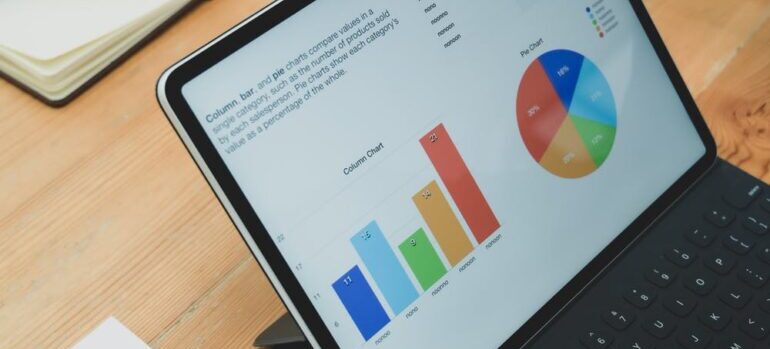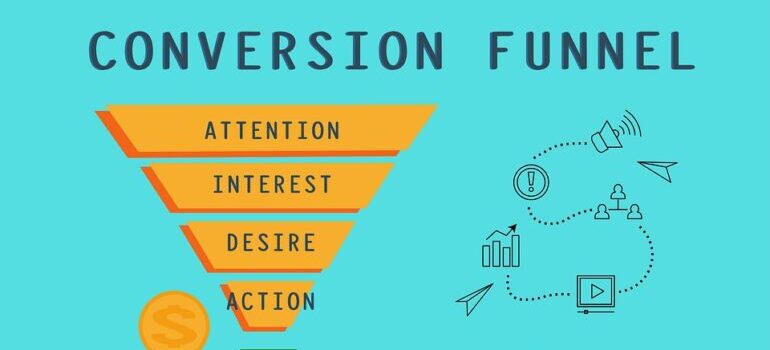No matter the size of your moving business, there are certain solutions that apply and benefit everyone. Here at MoversTech, we firmly believe in the value of Customer Relationship Management (CRM) solutions. Regardless of your industry and business size, their advantages are numerous and substantial. However, a common misconception is that smaller businesses have little to gain from adopting such solutions. Thus, let us devote this article to exploring the merits of CRM for small moving businesses.
Do small moving businesses need CRM?
Whether small businesses need CRM at all should likely be the very first question in this context. There is indeed more comparative value in CRM for larger businesses; all automation and database-related solutions are more powerful at scale. It’s natural that the more one’s workload and the larger one’s scope of operations, the more of a benefit will be immediately visible. However, that often leads to a pervasive myth that there’s no value in CRM for small moving businesses at all. That’s indeed a myth and nothing but that, for one simple reason; all such assets are of some benefit. Furthermore, some CRM solutions specifically aim to appeal to small to mid-size businesses (SMBs).

The benefits of CRM software may indeed not impact businesses of different sizes equally, but they’re the same nonetheless. Consider how the following may benefit your business;
Consolidate your data and manage leads more efficiently
As CRM solutions offer a centralized database, you can enjoy the perk of having all your customer data in one place. From contact information and sales history to even inquiry and communication history, there’s no denying the value of organized, accessible data. CRM can help all your relevant employees have instant access to all information they may need without the need for asynchronous, time-consuming communication.
Furthermore, such data can allow your teams to analyze and manage leads more effectively. Buying trends and preferences alone can offer insights on how and when you should approach each lead. Whether you have tens, hundreds, or thousands of leads, such insights can only be an asset, especially if you’re expanding your business.
Know, value, and segment your customers
On the subject of analyzing leads, profitability analysis is likely among the most notable perks of CRM for small moving businesses. In the growth stage, analyzing each lead and accurately assessing their profitability can be incredibly beneficial. With lead segmentation tools you can apply the criteria you find to be most relevant, from age demographics and gender to education and income, and inform your sales efforts accordingly.
While analytical CRM solutions tend to specialize in profitability analysis, most available solutions offer some core segmentation features. Even if high-end, specialized CRM software is outside your budget, basic access to such features alone can have a drastic effect on your operations.
Improve marketing and increase sales
If 2020 CRM statistics are anything to go by, CRM can demonstrably deliver more sales. At its core, CRM allows sales and marketing teams to cooperate more seamlessly. This, in turn, can allow both teams to track one another through clear, actionable metrics. Customer data and lead scoring can easily provide a frame of reference for marketers to refine their initiatives, as they won’t have to simply monitor sales and try to identify shortcomings across the conversion funnel.

One should note that collaborative CRM solutions specialize in internal team collaboration, as the name implies. They often come with more features of this nature, such as channel consolidation. However, all CRMs (for small moving businesses or otherwise) come with a core, centralized database – and for such purposes, it clearly suffices.
Maximize your efficiency, minimize your costs
Finally, all CRM solutions expressly aim to maximize your operations’ efficiency and, by extension, minimize your costs. On the former, consider the following advantages:
- Improved marketing targeting
- Better profitability analysis
- Improved insights into marketing effectiveness through closed-loop reporting
- Improved prioritization of tasks and initiatives throughout the sales pipeline
- Better sales insights through mapping marketing efforts to final sales
All of the above, as well as other applications, can make CRM for small moving businesses incredibly lucrative. Furthermore, on the subject of minimizing costs, consider the following advantages:
- Less need for costly outside communication among teams
- Less time misplaced into unprofitable actions
- Quicker, proactive response to market changes through predictive modeling
- Improved sales funnel with less wastage
- Improved customer retention, thus fewer costs on customer acquisition
Coupled with a higher return on investment (ROI) that decisions informed by better data can yield, there is no doubt that CRM can indeed lower your costs and refine your operations.

Criteria and features for CRM for small moving businesses
With all of the aforementioned in mind, let us discuss the exact CRM features you may look out for when choosing a CRM for small moving businesses. As we do, let us also note the unique factors that SMBs may need to consider as well.
Criteria
Initially, let us consider the most common criteria for SMBs.
Budget
By definition, small moving businesses and SMBs of any industry have a lower budget to invest in such tools. While many CRM solutions can offer excellent value for their price, sometimes less – that fits your budget – is more.
Ease of use
Secondly, ease of use is of paramount importance. User adoption rates are already a downside of CRM, but small businesses in particular can often not afford to have specialists working with CRM. Instead, you should opt for clean, user-friendly solutions your employees can use effectively.
Features
Next, let us consider the most valuable features of CRM for SMBs.
Functionality and a clean interface
As outlined above, user adoption is vital. As such, you’ll need to ensure you choose a CRM that offers quality functionality and a clean interface for ease-of-use.
A centralized database and communication channel support
A centralized database is the core feature of all CRM solutions by definition, and it’s irreplaceable. That aside, you will need support for phone, email, and chat channels so as to prioritize inquiries.
Lead management, reporting, and task automation
Similarly, lead management features are essential and, fortunately, frequent. One cannot overstate how useful reporting and task automation features are for SMBs either; a notable part of CRMs’ value stems from those very features.
Integration
Finally, all CRM solutions you consider should offer integration with existing software and devices. This is particularly true for small moving businesses, as you can likely not afford to spread thin among different, incompatible tools.

